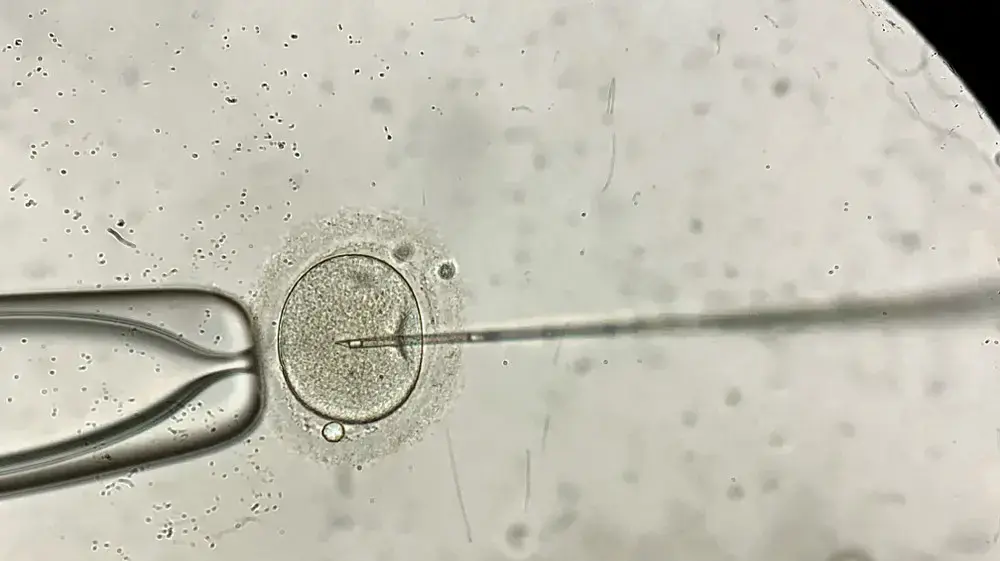Breast cancer is the most common cancer in women in Spain, according to the Spanish Society of Medical Oncology (SEOM), which estimates that 34,750 women will be diagnosed in 2022, almost 1,400 more than in 2021. When it comes to tumors, “ no two patients are the same”, says Miguel Ángel Quintela, head of the Breast Cancer Clinical Research Unit of the National Cancer Research Center (CNIO).
The researcher is one of the leaders of a project to develop
digital twins
of patients with these pathologies in an advanced stage (with metastases) to find out what path each person will follow once diagnosed and what therapy is most appropriate for each case.
The difference between patients is not just because each tumor is unique;
We must also take into account the circumstances and particularities of each person, which may affect the treatment, explains Quintela.
Factors such as lifestyle and eating habits also play a role, which can affect the growth rate of the tumor and make the immune system "more active or sluggish", including emotions, adds the scientist.
For the expert, this project represents a new step in precision medicine because until now all this information had not been collected to investigate the disease.
"We have seen that with genomics we are only capable of explaining a percentage of this variability," he affirms, and ensures that only with blood samples and clinical history "the universe of the patient" is not captured, which is one of the objectives of this investigation.
The first step of this new project has consisted of a trial with nine patients that has been carried out at the Fuenlabrada Hospital for a year, according to the researcher.
Now, the idea is to apply the study by recruiting 300 women with advanced stage breast cancer in the coming months.
From the first day, and for the next three years, women will wear bracelets that record their pulse and blood oxygen 24 hours a day, the hours of sleep and its quality, and the physical activity they perform.
They will also install an application on their mobile phones that, in addition to capturing all this data, will use GPS to know how and how much they move outside the home, and will send a monthly survey to each patient about their quality of life, mood or the type of diet you are following.
“If we have objectified these data in scales, we will be able to really see what role each of these factors plays in whether a patient responds or not”, reasons Sònia Pernas, head of the Breast Cancer Unit of the Catalan Institute of Oncology (ICO). who collaborates in the investigation.
In addition, this tool allows women to record the emotion they feel at all times as many times as they want and monitors part of their movements on social networks.
Quintela maintains that capturing the patient's activity in her free time can allow them to know what she is like and how she is in order to anticipate the trajectory she will follow.
“These are areas that we had never accessed as doctors and we know that it matters, but it was not feasible to monitor them,” she explains.
The teams involved in the project aspire for each patient to receive their therapeutic alternative.
Once they have all the information, the experts will develop, through artificial intelligence, these digital copies of the patients, as many as necessary, and in each one they will change a variable to be able to analyze which one offers the best results.
The CNIO researcher affirms that this project can improve the disease trajectory in an "authentically personalized" way: "We will be able to make a much more exact personalized assignment, more real than what we do now."
Sònia Pernas, from ICO, argues that the study is being carried out on women with these ailments at an advanced stage because this way results are obtained faster, although the oncologist does not rule out that in the future it can also be applied to people with other types less common tumors.
They have three years to carry out the research and "in early tumors, [the results] would take years or decades and it is not realistic to do so, at least for now," Quintela explains.
Advanced tumors are the pending subject of research, says Ruth Rodríguez, a Ramón y Cajal researcher at the University of Barcelona, who is not involved in the project led by the CNIO.
“We still have to understand them, to be able to target them specifically,” she says.
The scientist, who also works at the Bellvitge Biomedical Research Institute, believes that if this project works, it could mean "a very important change in our knowledge of the disease and in how we treat those affected."
In addition to the CNIO, two universities and nine Spanish hospitals are also working on the project.
The recruitment of volunteers has already begun at the Hospital de Fuenlabrada and at the Hospital de La Princesa, both in the Community of Madrid.
It will begin successively in the remaining eight in the coming weeks, says Quintela, who calculates that by March they will all be operating at full capacity.
So far, the results of the pilot project have been very positive: "The samples are in good condition and the patients have been very cooperative," he concludes.
You can follow
El País Salud y Bienestar
on
,
and
.















